There is no such thing as a bad tree, but the way humans plant them can lead to problems.
Over 25% of Indonesia's rainforests have been deforested and replaced with vast palm oil plantations. Why is palm oil bad? Because in these man-made monocultures, local wildlife can't survive and the palm trees' roots soak up huge amounts of water, destroying the soil.
But boycotting palm oil or putting a ban on it would not solve the problem - neither for nature, nor for people. Read further to find out why the solution to palm oil is more complex.
What is palm oil?
Palm oil is a type of vegetable oil that comes from the palm fruit, which grows on a specific type of tree called African oil palm. Originally from west and south-west Africa, it was introduced by Dutch colonists to Indonesia and Malaysia in the late 19th century.
Palm oil trees grow naturally in tropical forest areas, but have now been planted and farmed extensively to produce enough palm oil to satisfy global demand.
Palm oil, the green fossil fuel
The European Union alone is accounted for almost 50% of global imports of Palm Oil into its territory. India, China and the EU are the biggest consumers of this vegetable oil, though they do not produce it and their demand is entirely met by imports.
In fact, 74% of the EU’s palm oil is imported from Malaysia and Indonesia, putting big pressure on these countries’ forests.
Initially thought of by the international community as a sustainable alternative to fossil fuels, Europe uses 45% of its palm oil for biodiesel and an additional 15% to produce heat and power.
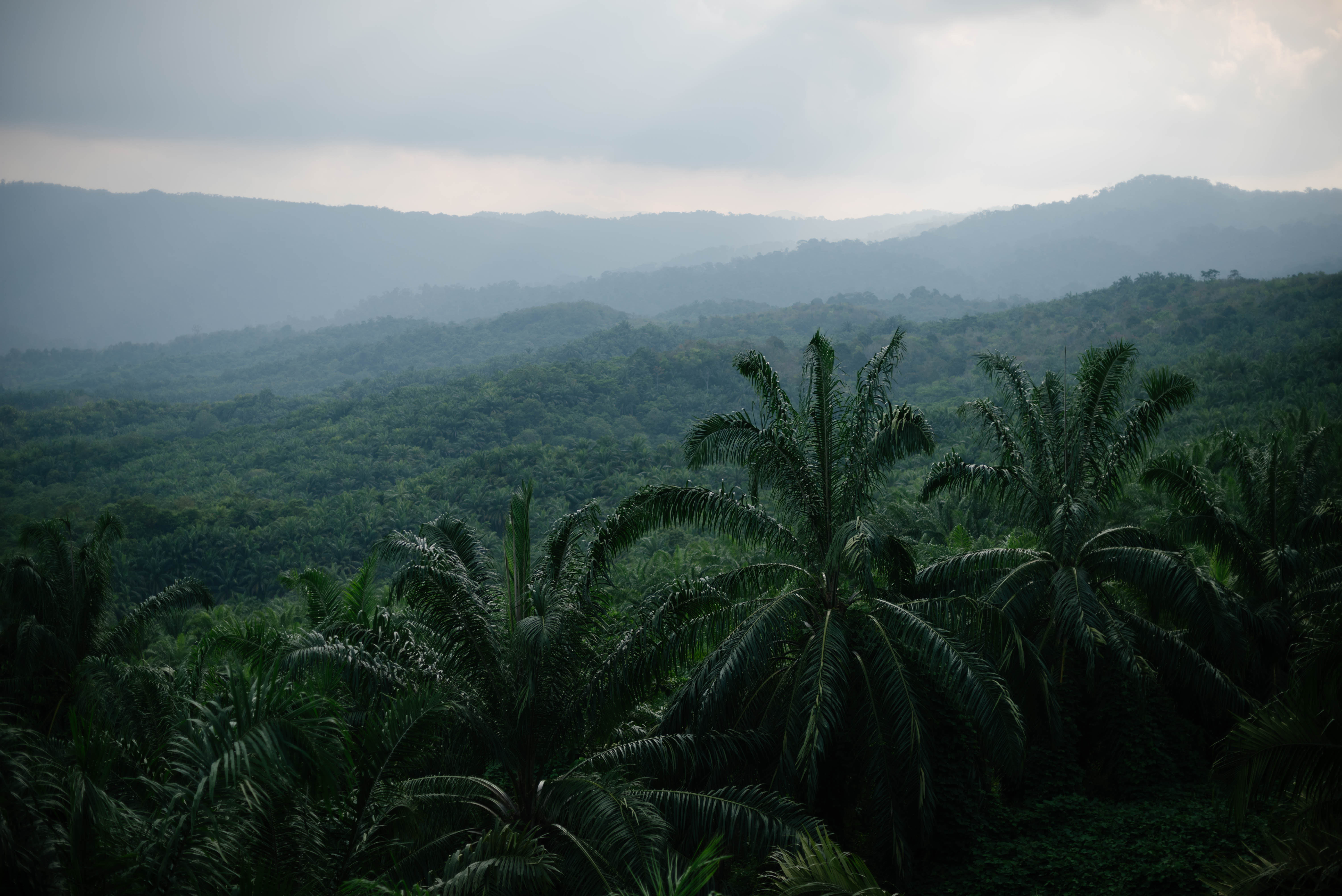 A deceptive image: at first sight, palm oil plantations look green and lush. But palm oil has been a main driver of deforestation in Indonesia.
A deceptive image: at first sight, palm oil plantations look green and lush. But palm oil has been a main driver of deforestation in Indonesia.
Palm oil is in every second product you consume
Try living a day without palm oil. It’s almost impossible. Processed foods, cosmetics and even clothes contain palm oil.
The properties of this tree and its fruit have made palm oil a key component across virtually all industries:
-
For big manufacturing companies, growing palm oil is efficient. Unlike other trees, this type of palm trees can grow very quickly on any type of soil.
-
The palm oil fruit is harvested all year round, giving it the highest yield per acre of any oilseed crop. In comparison, palm fruit produces eight times more oil than soybeans.
-
Palm oil is also extremely versatile. It’s healthier than other vegetable oils, can create foam in shampoo and has an ideal melting point for creating cosmetics such as lipsticks. It’s also used to power cars in the form of biofuel and is even contained in animal fodder.
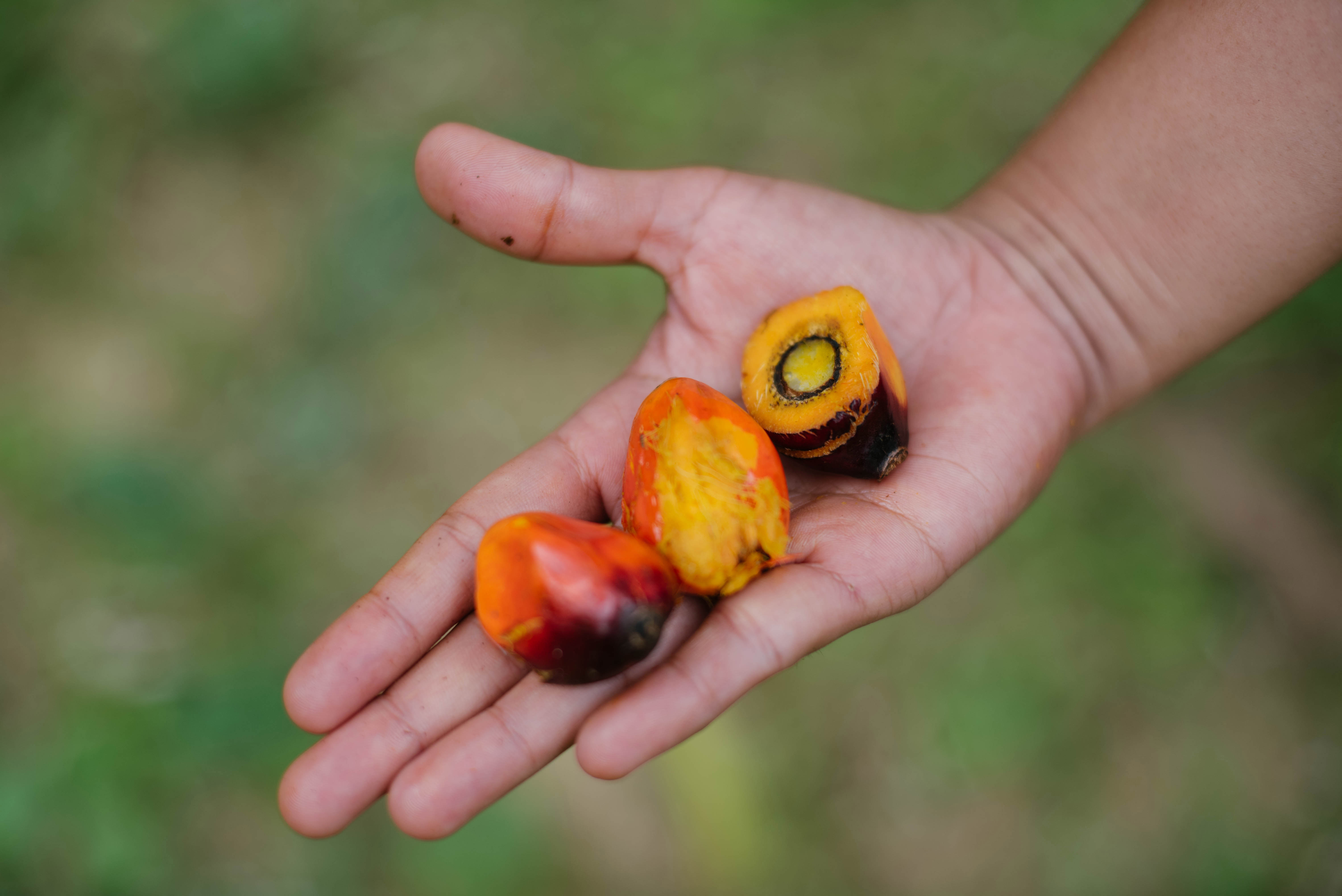 The fruit of the palm oil is already very oily on the outside. This makes it very easy to extract the oil and process it at an industrial scale.
The fruit of the palm oil is already very oily on the outside. This makes it very easy to extract the oil and process it at an industrial scale.
The main facts about palm oil
The palm oil industry has made a huge impact on the natural rainforests of Southeast Asia. These man-made monocultures are damaging on a local and a global environmental level. Our current consumption of products containing palm oil is unsustainable.
Here are the main facts why palm oil plantations are harming the environment:
-
They release massive amounts of CO2 in the air as rainforests are cleared. Rainforests' soils hold about 45% of the world's terrestrial carbon, cutting them down is like releasing a carbon bomb.
-
Palm oil plantations accelerate the rise in global temperatures (trees, especially old trees in primary rainforests, are the most efficient carbon absorbers in the world).
-
They directly threaten 193 of the world's critically endangered, endangered and vulnerable animal species, including the sumatran and the bornean orangutan (source: International Union for Conservation of Nature)
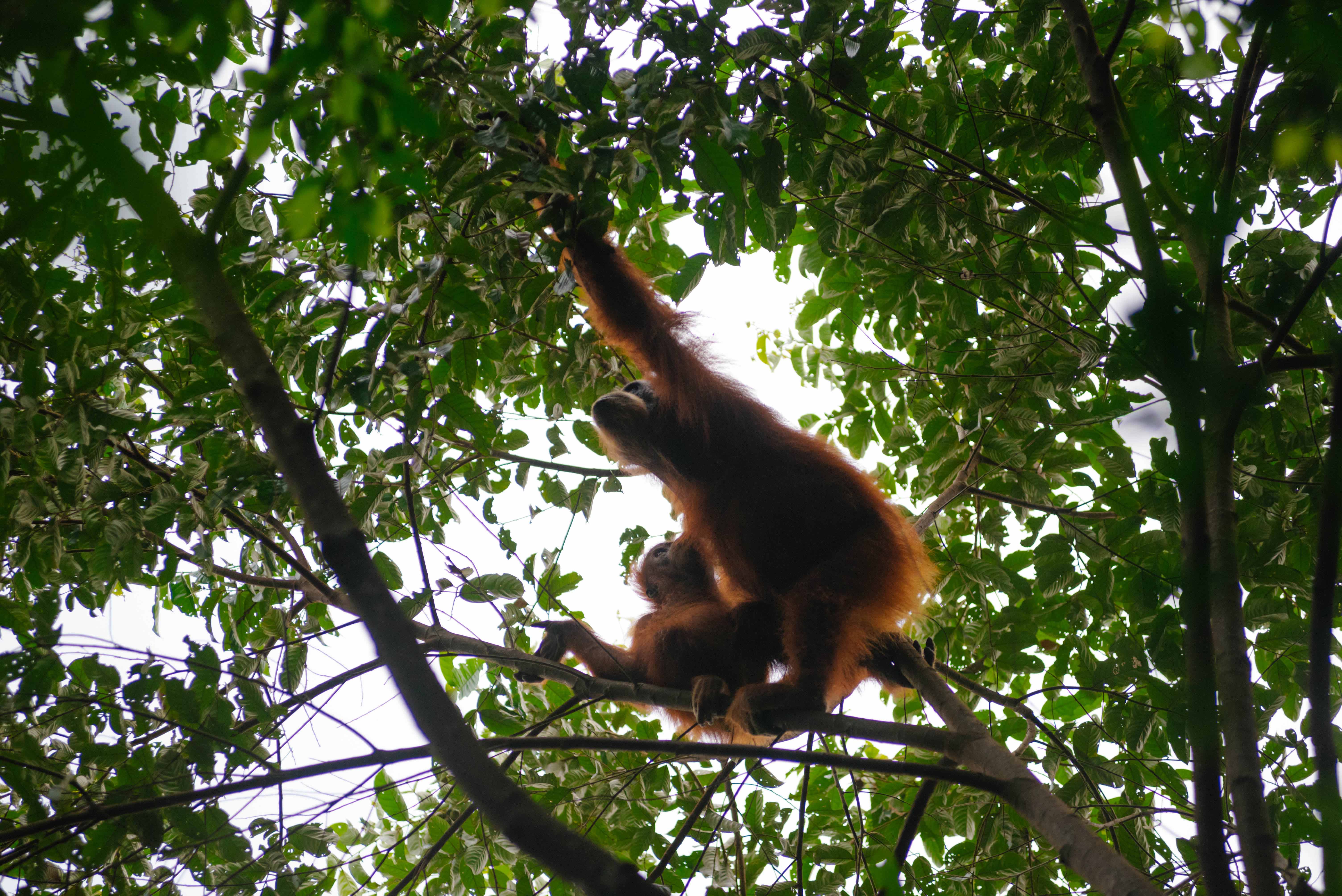 In the past 10 years , the orangutan population has decreased by 50 percent as a result of habitat loss from forest clearing for palm oil plantations.
In the past 10 years , the orangutan population has decreased by 50 percent as a result of habitat loss from forest clearing for palm oil plantations.
Why boycotting palm oil is not a solution
Palm oil makes up about 10% of all Indonesian exports and 5% of Malaysia’s, which makes it their most important agricultural export commodity.
About 4 million people in rural Indonesia directly depend on it, and if you go further up the palm oil supply chain, an estimated 17 million additional people earn their income from this industry.
Palm oil has a huge impact on the lives of local farmers, who have sold their land to huge companies.
Often, even whole pieces of land are sold to palm oil businesses, in exchange for much-needed money for food, health or the education of their children. Often, local communities are also promised roads to access otherwise nearby hospitals. However, these roads are usually not fully built by the corporations and rather resemble a mud path.
 Entire families in rural Indonesia work in the palm oil industry. Big corporations offer quick money the communities need to build roads or for their children's education and health.
Entire families in rural Indonesia work in the palm oil industry. Big corporations offer quick money the communities need to build roads or for their children's education and health.
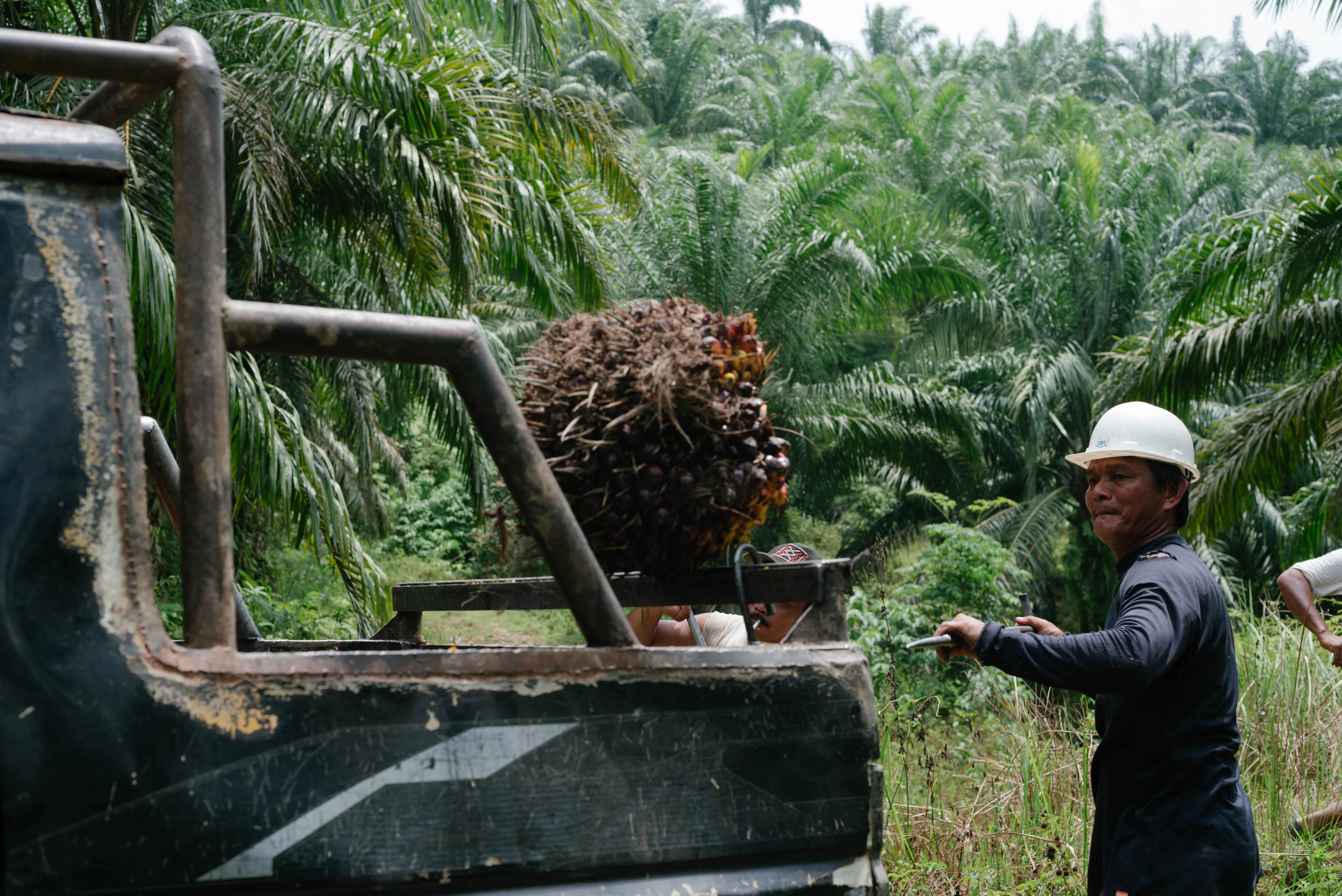 Around 20% of the Indonesian population depends on the palm oil industry.
Around 20% of the Indonesian population depends on the palm oil industry.
That’s why finding alternatives to palm oil is a process.
There is no single product or company that can undo the damage caused. The solution to palm oil needs a bigger structural change involving consumers, big corporations, as well as national and transnational institutions.
If we want to undo the trend, we will have to create alternatives to palm oil that offer these communities an income from different crops and forest goods.
One easy way to help fight palm oil
Ecosia is reforesting former palm oil plantations in Sumatra with the money generated from your internet searches. On Borneo, Ecosia is also helping create alternative income solutions to palm oil.
By making it possible for farmers to go back to living off the forest without damaging it, we are tackling the palm oil problem and helping both people and nature.
We need your help to reforest Indonesia and protect its remaining patches of rainforest, which are home to the endangered sumatran and bornean orangutan.
If you haven't already, install the Ecosia extension and download our app!
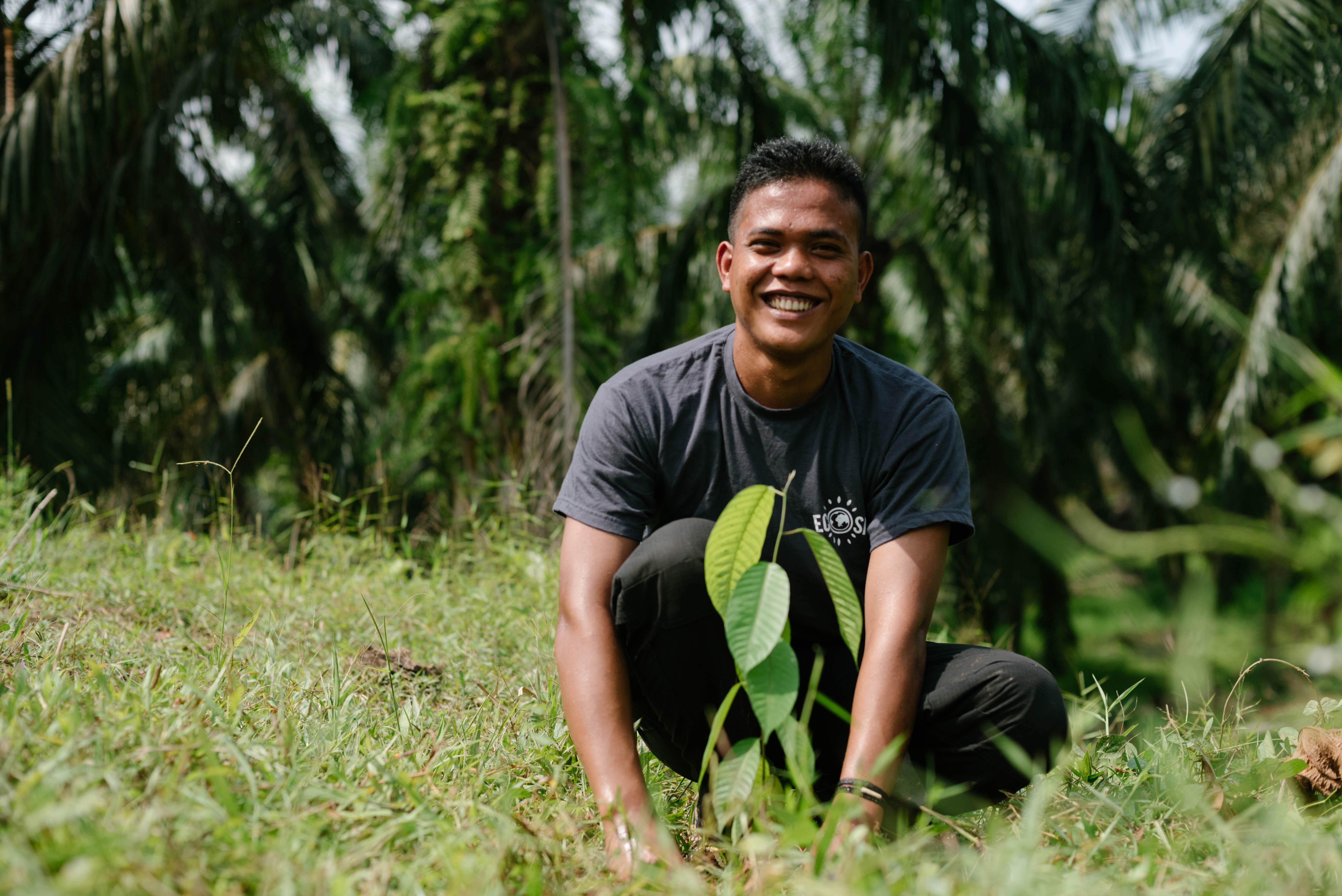 Tree planting in former palm oil plantations: Ecosia users are helping stop the palm oil trend.
Tree planting in former palm oil plantations: Ecosia users are helping stop the palm oil trend.
